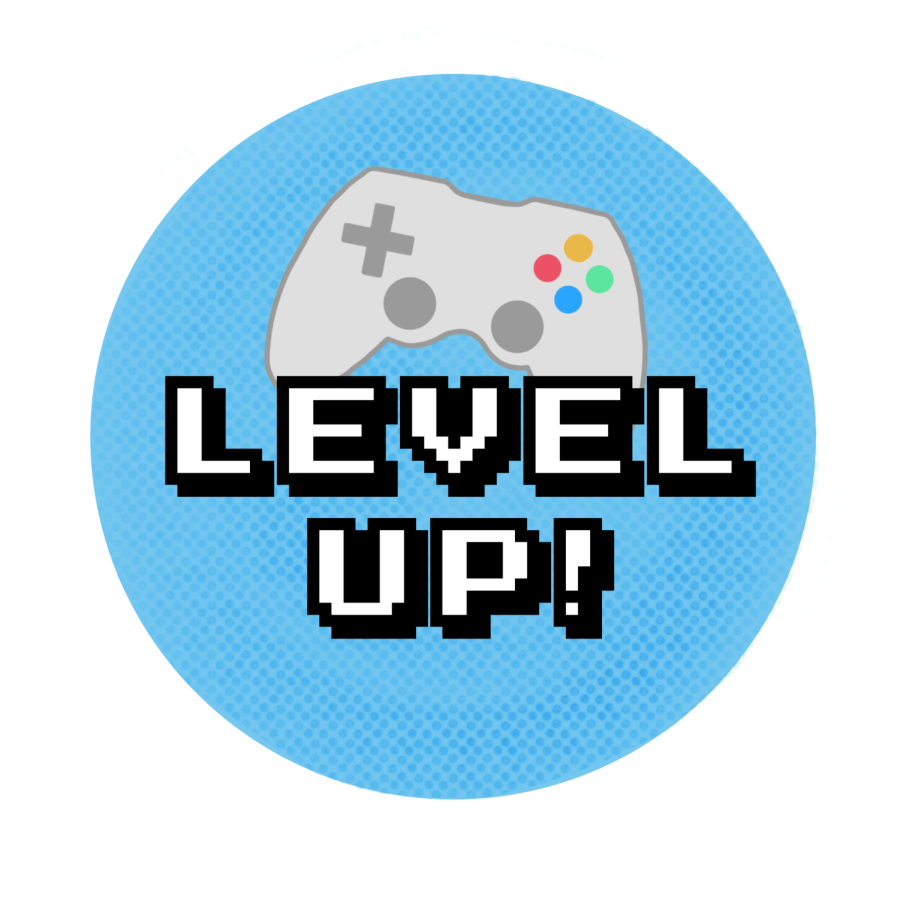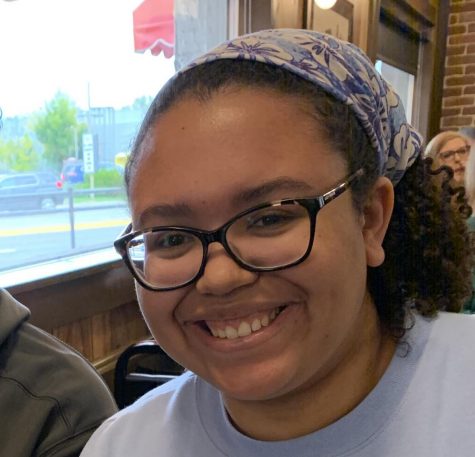Level Up! | Gaming Glossary: Tabletop RPGs
Level Up! Is a biweekly blog about all types of games, from Dungeons and Dragons to Mario Party.
October 13, 2022
It’s that time of the month where I go over some gaming jargon you’re likely to hear thrown around without knowing what it means. This time around I’m switching to things that come up a lot in tabletop RPGs. Special thanks to my friends over at Pitt RollPlayers, who suggested some of these and are always willing to help newbies.
DM/GM
Abbreviation for “Dungeon Master” or “Game Master.” The person who plans the campaign, plays everyone the players interact with and shapes the stories. Each system has its own word for it, but usually people just say “DM” or “GM.”
The DM had to add an encounter on the spot because the players attacked the mayor.
Campaign
The story of what you and your characters do over multiple sessions.
We’re in the middle of a campaign right now, we just robbed a dragon.
One-shot
In contrast to a campaign, playing a self-contained story over the course of a single session. To provide an analogy — movies are to TV what one-shots are to campaigns.
I don’t have the time to commit to a campaign, but I can do a quick one-shot every now and then.
NPC
Abbreviation for “non-player character.” In a TTRPG context it’s everyone played by the DM.
This NPC gave us the quest.
Live/Actual Play
A show, stream or podcast of people playing a TTRPG. Sometimes played live on places like YouTube and Twitch.
“What’s your favorite Actual Play?” “Dungeons and Daddies.”
Metagaming
When a player makes a decision based on information they have but the character they’re playing doesn’t. There’s no hard rule against metagaming — how OK it is for a given campaign depends on the group you’re playing with.
You can’t go help Henry’s character, you don’t know where he is. No metagaming.
PVP
Abbreviation for “Player vs Player.” A situation where player characters have to fight each other. Some people enjoy this, some people don’t — it’s something to discuss with other players.
Sarah wants to take the artifact back to the temple, while Vic wants it for himself. This could turn into PVP.
Classes/playbook
The basic template of a character, which determines what you can do mechanically. There are different words for these, but in Dungeons and Dragons it’s “classes,” and in “Powered By The Apocalypse” games, it’s “playbooks.”
If you want to make a character who casts magic, then this playbook might be better than that one.
Min/Max
Building your character so all of your stats are in one or two key areas instead of spreading them out evenly. It’s the difference between having a character who is very specialized vs a jack of all trades.
I’m going to min-max my character, so all my points are in Charisma but my Wisdom is terrible.
Murder Hobo
A term for a player who opts to kill everything around them instead of doing anything else.
Stop being a murder hobo, now we can’t buy weapons because you burned the entire village down.
AC
Abbreviation for Armor Class. It’s a stat that characters in D&D have that determines whether they’re going to be hit by an attack.
Imsh rolled a 5 to attack, but the goblin’s AC is 8, so the attack misses.
DC
Abbreviation for Difficulty Class. It’s the number you have to beat in a given roll to successfully perform a task. Unlike Armor Class, which sometimes people will say, almost no one says anything other than “DC.”
The DC to lift this door is 10. Raven rolled a 9, but since she has a +2 to Strength, the total is an 11 and she can lift the door.
HP
Abbreviation for Health Points. Found in both video games and TTRPGs, this means how much damage you can take before your character dies/faints or is otherwise removed from a scene. Not every game has permadeath so it depends.
Vierra’s HP reached zero, so she can’t fight anymore.
XP
Abbreviation for Experience Points, written as “XP” or “EXP.” Points you earn from an encounter or completing a task that lets you level up and gain new skills.
I only need 300 more XP to reach level 10!
play by post
Playing a game on Discord over text channels instead of playing in real time.
This scene isn’t important, so let’s do it in play by post later.
BBEG
Abbreviation for “Big Bad Evil Guy.” This one’s self-explanatory, but it’s usually the final boss of a given arc.
Damn, why did the BBEG have so many minions?
Module
An outline for a campaign or one-shot that the creators of the game provide.
This module is good for beginning DMs.
Homebrew
A class, playbook or campaign made by someone who is not officially affiliated with a game.
None of the playbooks worked for my character, so I used a homebrew one.
session zero
A session where all the players and GM meet and go over the characters, but may or may not involve actually playing.
“What playbooks are everyone using?” “We’ll figure it out in session zero.”
TPK
Abbreviation for “Total Party Kill.” When all the player characters are defeated and there’s no one left who can act. This is the closest you can get to a “Game Over” in a TTRPG, though you can always make new characters and continue where you left off.
We got a TPK because my brother wanted to eat the dead horse without checking his surroundings, so we got ambushed.
X card
A way to hard stop a scene if a player gets too uncomfortable
Alex used an X Card so we’re going to do something else.
lines and veils
A list of things that players are uncomfortable with and want to avoid/not see in the campaign if possible. A line is a hard no, while a veil might mean the player is OK with it as a backstory element but not actively happening in the game. Either way it’s important to discuss this with everyone involved in the campaign.
Sexual assualt is a line for one of the players so we won’t have it happen.
Railroading
When the GM forces the players to take certain actions, or diminishes the impact of their choices to make the plot they want happen.
GMs who railroad make the game less fun for players.
dice abbreviations (d6, d10, d20)
d(number) refers to how many sides on the dice and tells you which dice you’re supposed to use for a roll. A d4 is a four-sided die, a d6 is a regular six-sided die, etc.
Roll me two d10s.
Crunchiness
How complicated a game is. A one-page game has fewer rules and mechanics to keep in mind than your average PbtA game, which has fewer rules to keep track of than D&D, which can fill full books with mechanics.
Another way to remember this is that crunchier games often use more dice, and if you put them all in your mouth, they would be crunchier.
This is a pretty crunchy game for a new player, why don’t you try something simpler?









